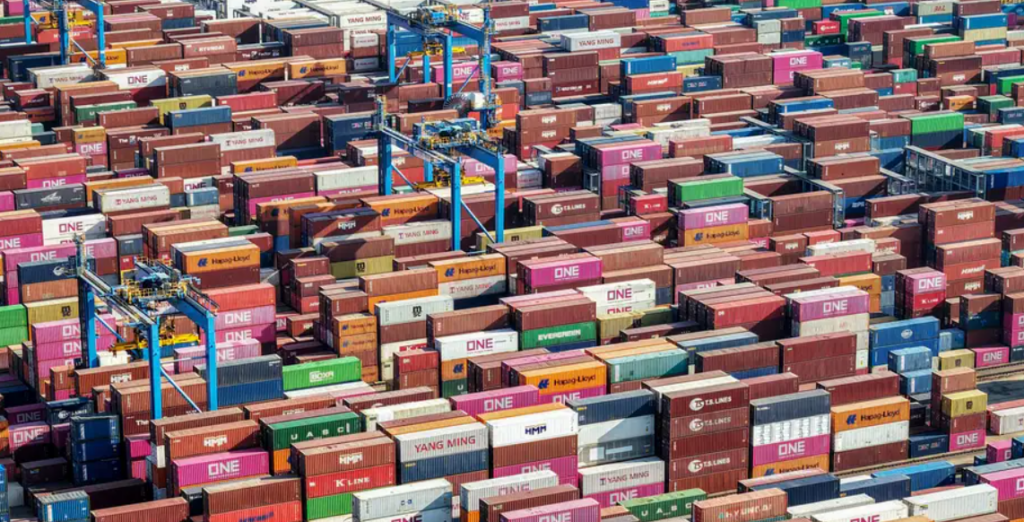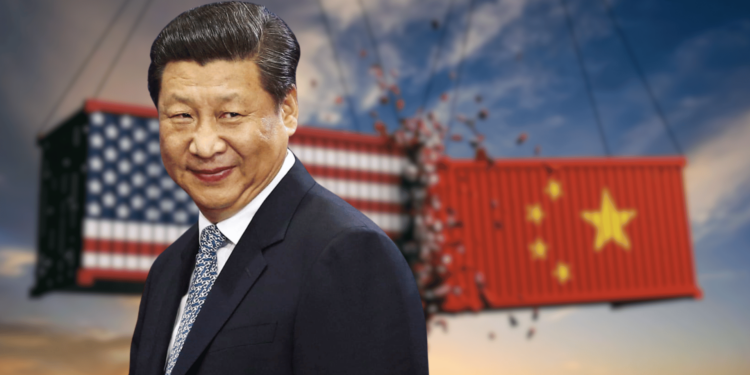- China raised tariffs on U.S. goods to 125% in response to Trump’s latest trade moves.
- Beijing called the U.S. tariff strategy “economic bullying” and warned it would retaliate if needed.
- Economists fear the escalating trade war could trigger a global recession as market jitters grow.
In the latest tit-for-tat of what’s quickly become a full-blown economic slugfest, China said Friday it’s hiking tariffs on U.S. goods—from 84% all the way up to 125%. The new rates kick in Saturday, and they’re Beijing’s answer to President Trump’s decision earlier this week to raise tariffs on Chinese imports while putting a 90-day pause on tariffs for other countries.
And the U.S.? It’s now charging Chinese goods with a whopping 145% tariff when you include earlier hikes tied to fentanyl-related items. Beijing’s not mincing words, either—they’re calling it “economic bullying” and promising to fight to the end.
“This will become a joke in the history of the world economy,” a Chinese Finance Ministry spokesperson said, clearly not holding back.
China Isn’t Backing Down
China’s Commerce Ministry said it’s planning to hit back legally too, by filing another complaint with the World Trade Organization. And it’s not just trade officials talking—Chinese President Xi Jinping weighed in, warning that “there are no winners in a tariff war.” He made the comment during a meeting with Spain’s Prime Minister, throwing in a bit of national pride for good measure:
“China has always relied on itself… not on favors from others, and we’re not afraid of unreasonable suppression,” Xi said.
Foreign Minister Wang Yi echoed that sentiment, stressing that China’s resistance isn’t just about self-defense—it’s about standing up for a global community that, he warns, could be dragged “back into a jungle world where might makes right.”
Markets Rattled, Recession Fears Grow
The rollercoaster approach to tariffs from the Trump administration—pausing duties one day, raising them the next—has spooked global markets. Stocks and bonds have been on edge, and economists are sounding alarms.
“The risk of this turning into a global recession is rising,” said BMO Capital’s Jennifer Lee. “And no one really knows when—or if—this will end.”
China’s new tariffs are aimed at major American exports like soybeans, aircraft parts, and pharmaceuticals. Just last week, they also halted imports of U.S. sorghum, poultry, and bonemeal. At the same time, they’re tightening control on rare earth minerals, a not-so-subtle threat to America’s tech sector.
On the flip side, the U.S. imports a lot of electronics, machinery, and toys from China—meaning those prices are almost guaranteed to rise with tariffs now at 145%.

Trump’s Big Bet on U.S. Jobs
Despite the chaos, the White House is sticking to its story: that these tariffs will lead to more American manufacturing and jobs. Whether or not that pans out? Still very much TBD. The gamble is political—and with the economy teetering and 2026 elections looming, it’s a risky one.














